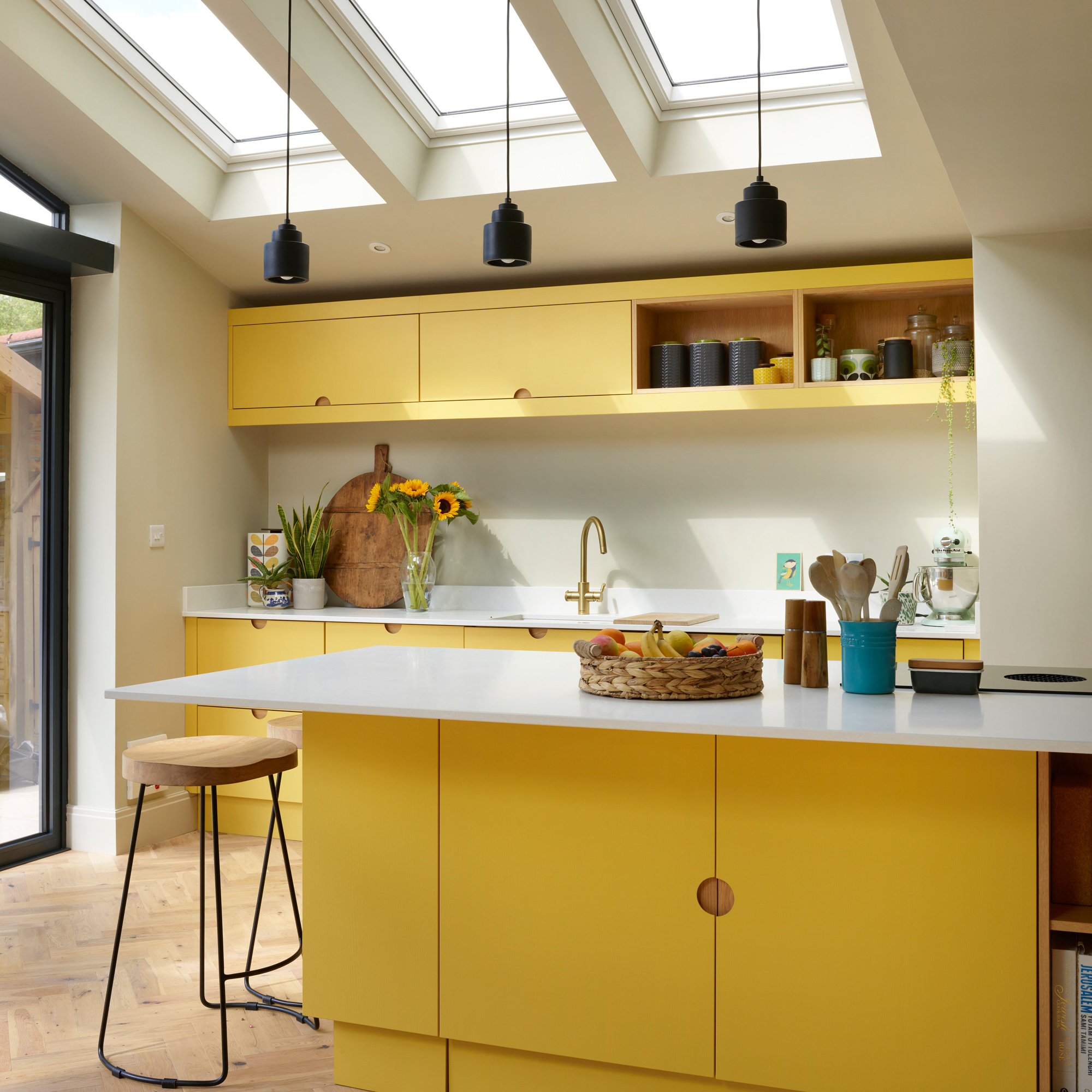
Dinnertime can be chaotic. When the Alexa timer’s blaring, and you can’t even remember what it’s for, plus the kids are edging toward full-blown hangry, it’s inevitably this moment that you realise you forgot to preheat the oven, so now dinner’s running 15 minutes behind.
There’s no doubt about it, dinnertime can be stressful! Anyone who has watched The Bear or any other cooking show knows that things can get heated in professional kitchens, and yet, day after day these talented individuals can deliver under the most intense circumstances. So how do pro chefs do it without caving under the pressure?
Spoiler alert – it’s all about adopting smart habits. The good news? You don’t need a professional-grade kitchen or a Michelin star to try their tricks. These habits are all about efficiency, effective kitchen organisation tips, and taking the chaos out of cooking.
We enlisted the help of four expert chefs to talk us through their seven habits for an efficient kitchen that we can transfer to our homes to make dinner an altogether more efficient and enjoyable experience.
1. Mise en place
Mise en place is a French term that basically means ‘everything in its place’, and is one of the things pro chefs swear by. Food expert, pastry specialist and founder of Chocolates & Chai, Rizwan Asad reveals it’s a vital habit for an efficient kitchen.
‘I’m big on having everything in its place,’ Rizwan says, ‘When I’m working in a kitchen, I’m always thinking about where I’m moving and how much effort it takes. I set up my workspace so that everything I need is within arm’s reach – whether it’s knives, cutting boards, or pans. The more you can avoid unnecessary steps or reach for things, the faster and smoother everything goes. It’s the kind of thing that saves you time, especially when you’re juggling a lot at once.’

Make it work for you: Mise en place in a family kitchen rests in thinking about your cooking journey and having the tools you’ll need nearby at each stage from prep to plating up. Place spices and oils that go straight into the pan next to the hob. Have your knife block or drawer closest to the section of the countertop you use for cutting. Then keep plates and cutlery together ready to be transferred straight to the table.
But the golden rule is to always put your spatulas, ladles and measuring jugs back in the same place that way you’re not scrambling around looking for them at a pivotal moment.
2. Quality pans are a must
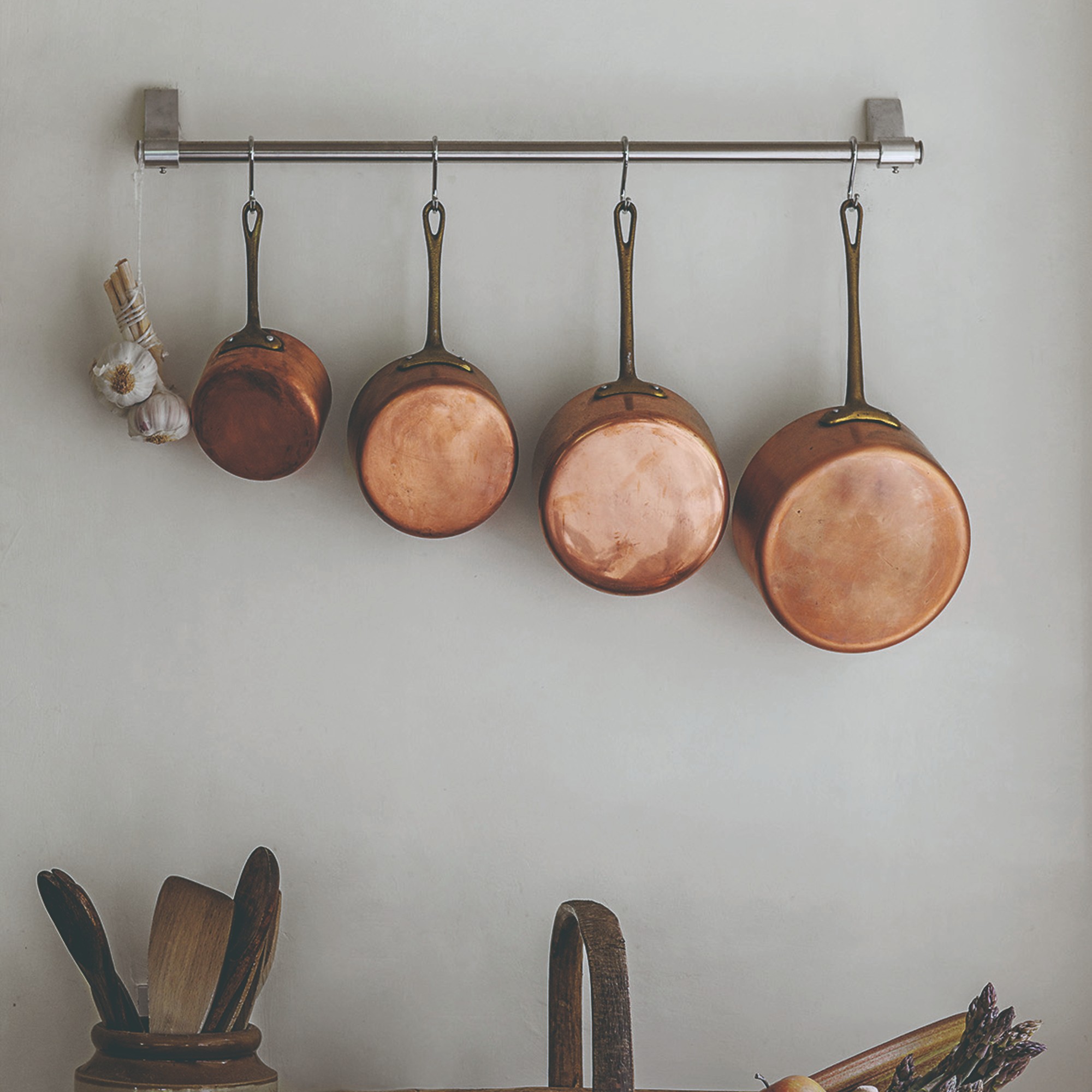
As far as game-changing habits for an efficient kitchen go, investing in the best saucepans is right up there. Paul Harley, Hotpoint’s in-house chef advises, ‘Invest in good quality pans with thick bottoms as they will last a lifetime, retain the heat and distribute it evenly, making them more efficient.’
And for another trick, this one aimed to make multi-taking easier he says, ‘I recommend using steaming baskets on top of pans instead of lids. Then you can boil potatoes while steaming carrots and broccoli – that way you reduce the amount of water and energy you have to use.’
Make it work for you: Do an inventory of your cookware and separate the pots and pans that are no longer cutting the mustard. Then, when funds will allow, invest in high-quality replacements and you’ll marvel at how much better they are to use.
If you're looking to invest it doesn't get much better than this set of stainless steel pans that has quick heat-up times and heat-resistant handles.
ProCook is one of the best spots for picking up chef-kitchen quality cookware at affordable prices and this set is no exception with a steamer included in the set.
Ceramic saucepans are brilliant for efficiently conducting heat, and this Ninja set impressed us with its non-stick surface.
3. Strategic organisation
We all know how important it is to keep some semblance of organisation in our kitchens. However, it can be easier said than done right in the middle of a busy dinnertime. But to keep stress levels down, it really is vital. Chef Dean Harper, founder of Harper Fine Dining says, ‘Maintaining an orderly kitchen is important. Strategic organisation ensures tools and pantry items are easy to find and use. Storing knives on a magnetic rack keeps them both safe and accessible, while labels and clear containers help streamline meal preparation. Small changes like these can significantly improve efficiency.’
Make it work for you: Trying to organise an entire kitchen and find places for everything to go can be overwhelming, so break the job down when planning kitchen storage ideas. Start with where you prepare food, could the cupboard below the prep space be swapped out? If it currently stores your drinking glasses or acts as a junk drawer, perhaps chopping boards and spatulas would be more suited to the space. Then move on to your pots and pans drawer. Are they shoved in higgledy-piggledy? Look at dividers so that they can be lined up with their matching lids. Implement this sense of strategic organisation to avoid kitchen storage mistakes ruining your cooking experience.

4. Keep on top of inventory
If there’s one thing that can make dinnertime even more stressful, it’s realising that you’re missing half of the ingredients needed or the ones you do have went off two days ago. That’s why taking a few minutes to have a good search through the fridge and freezer way before it’s time to cook is important. Pro-chefs check inventory and deliveries far before dinner service.
Rizwan Asad says, ‘Keep a proper inventory. It might sound a little too organised, but I really need to know what I have.’
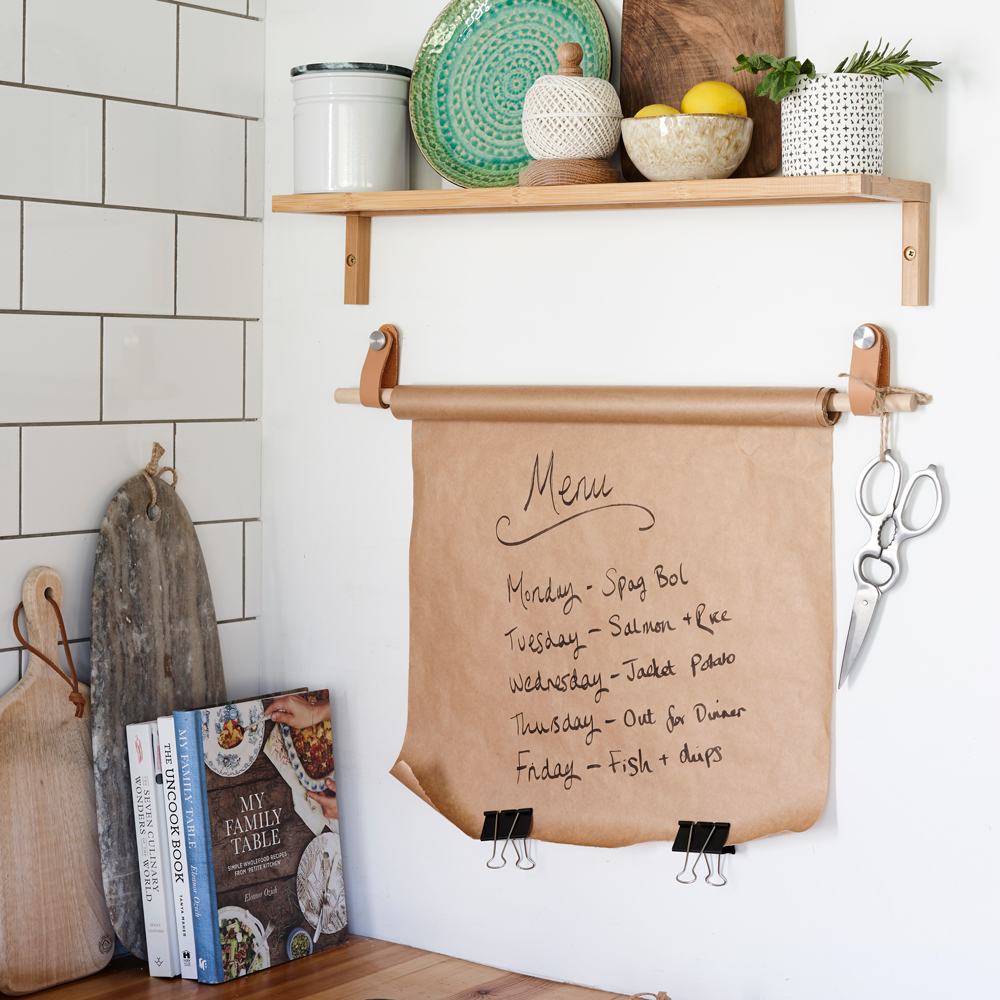
Make it work for you: Meal planning will make dinnertime so much easier. There are few things more annoying than trying to decide what to cook when you’re already hungry and there’s very little in the fridge.
Rizwan explains, ‘When I’m at home before I shop, I always take a quick inventory of my fridge and pantry. You’d be surprised how often you forget about that bunch of spinach you meant to use last week. And once you know what’s already in the kitchen, you can make meals without wasting ingredients or buying more than you need.’
Try using a meal planner, you can make one or buy a dedicated board like this one from Dunelm. Simply fill it in for the week and work out the ingredients you’ll need, then take it shopping with you. Make sure to check the dates on everything you’re buying so that it lasts until the day it’s needed.
5. Clean as you go
Scottish chef Dean Banks, a finalist of MasterChef: The Professionals and head of the Dean Banks Group’s advice is simple but transformative: clean as you go. ‘The worst thing is when you’ve cooked a big slap-up meal for your family, and the kitchen looks like a nightmare,’ he says.
Make it work for you: Dean advises that the secret to avoiding post-meal chaos is to tackle small messes immediately. Once you’ve finished chopping vegetables, wash the knife and board right away. If you’re done with a bowl, rinse it and put it aside. By the time dinner hits the table, your workspace should be spotless. Not only does this keep the kitchen functional, but it also lets you enjoy the meal without the dread of a massive clean-up looming over you.
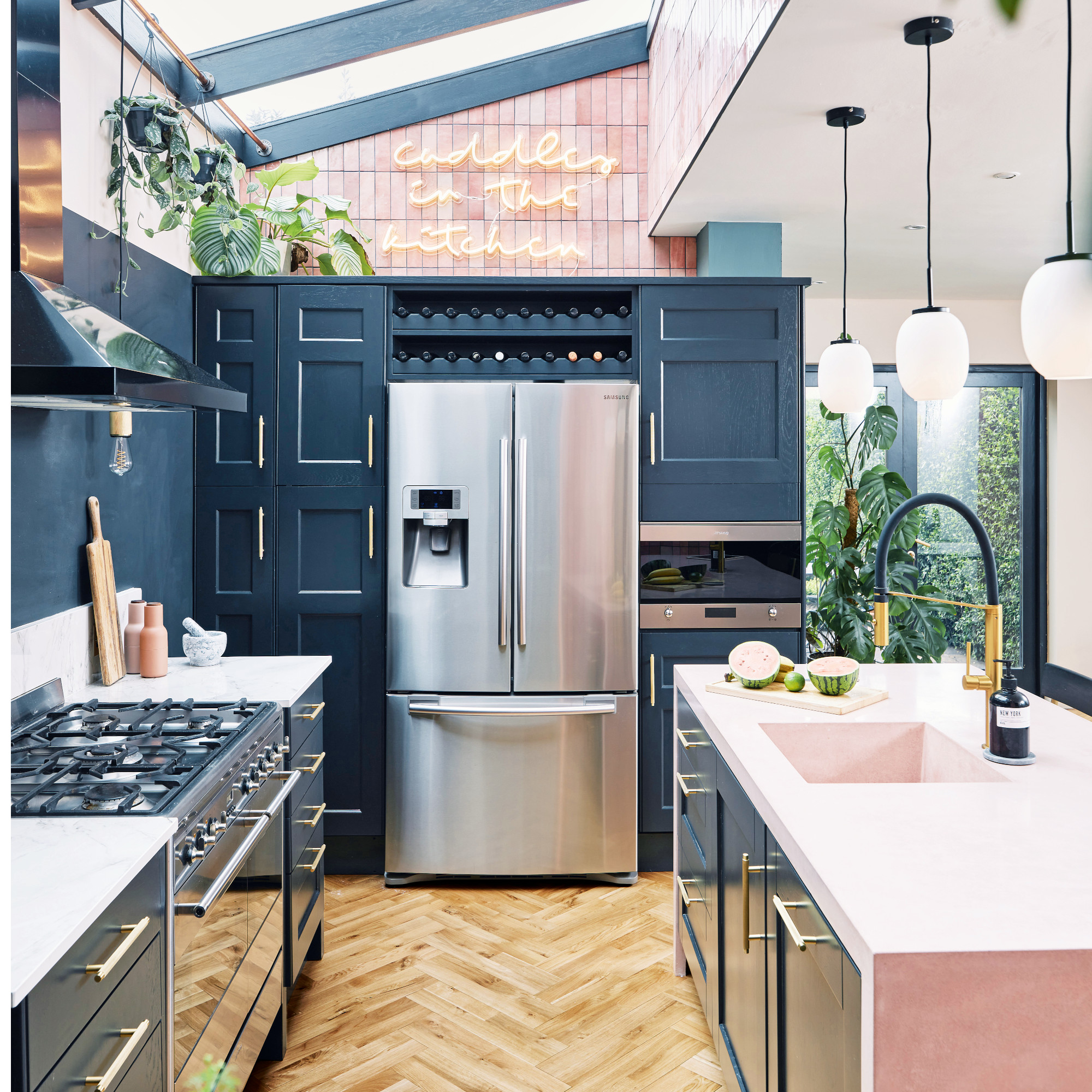
6. Conserve energy where you can
We’re in the dead of winter, and energy usage is at its highest point of the year. But it’s not just your purse that can take a hit from wasting energy; it’s dinnertime too. Dean Harper explains, ‘Energy conservation also plays a role in kitchen efficiency. Preheating the oven or boiling water while preparing ingredients can save time and reduce energy use.’
Make it work for you: Before you start cooking, take a minute to think about what you actually need to use. Do you really need the airfryer, oven, kettle and microwave? Which of these kitchen appliances could multitask? Dean says multi-taking is a vital habit for an efficient kitchen for example, ‘Residual oven heat can be used to warm dishes, making multitasking more effective.’
Paul Harley advises putting your microwave to good use, ‘Steaming your vegetables in the microwave is a quick, energy-efficient way to prepare them for your dinner and is one of the most efficient ways to keep nutrients intact, thanks to minimal water and a short cooking time. It’s very similar to traditional steaming but much quicker and more energy-efficient. The key is to use a good-sized dish, add the right amount of water, and cook on full power.’
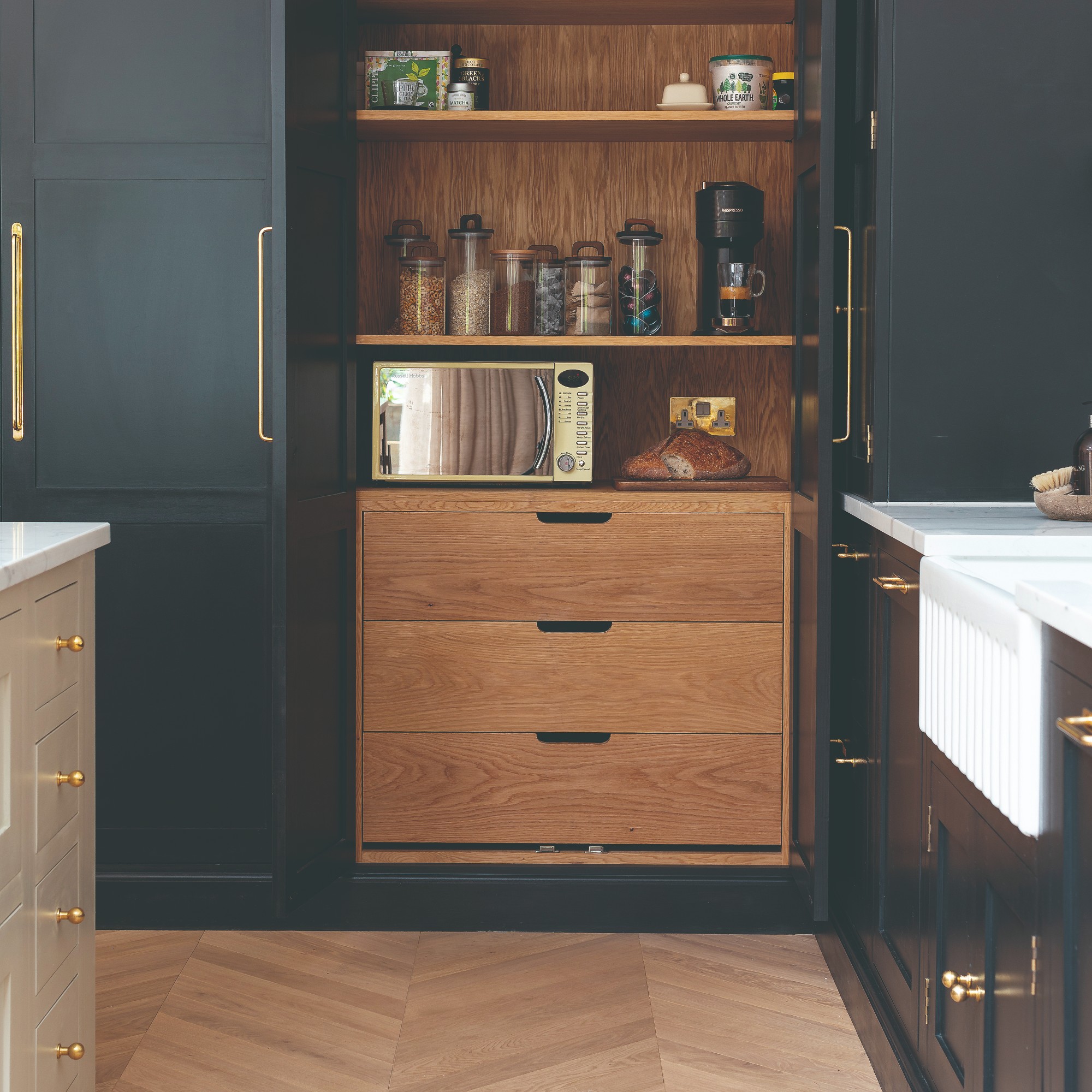
7. Invest in the right gadgets
Lastly, MasterChef: The Professionals finalist Dean Banks believes that having the right tools can elevate your cooking experience. Among his top recommendations are simple yet effective gadgets including the Vogue speed peeler from Amazon (£3.58) or a julienne peeler for perfectly julienned veg in no time.
For families who love to bake, he considers a KitchenAid stand mixer a worthwhile investment, especially since his son’s gluten-free diet inspires a lot of home baking.
Make it work for you: Take time out to make a list of the things that take you the longest and cause you the most hassle when cooking. Is it peeling veg, or hand whisking sauces etc? Once you have the list, go online and see what affordable tools could make your cooking experience not only easier but more enjoyable, too. Our Kitchen Appliance editor swears by her microplane grater for making quick work of grating and zesting.
While it would be foolish to believe that your kitchen will be running more efficiently than a Michelin-star kitchen with these tips. Try implementing just a couple of them and see what stress they can help you offload from meal times.







